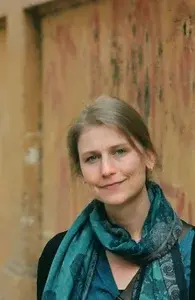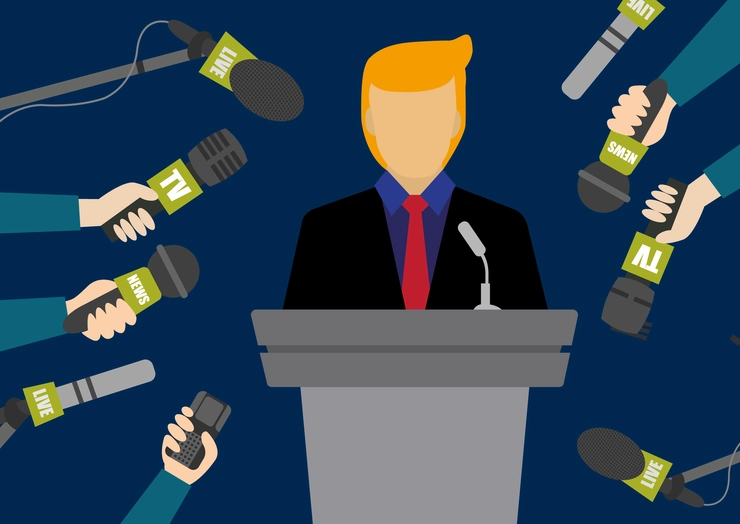Bitte nutzen Sie für Fragen rund um das Auslandsstudium meine regulären Sprechzeiten (siehe Hinweis unter "Wissenschaftliche Mitarbeiterin").
Bitte nutzen Sie auch die zusätzlichen Informationsangebote auf der Website.
Campus
Seminar für Medien- und Kommunikationswissenschaft
C18 – Lehrgebäude 4
Alfred-Weber-Platz 4
99089 Erfurt
Universität Erfurt
Seminar für Medien- und Kommunikationswissenschaft
Postfach 90 02 21
99105 Erfurt
Students please use my regular office hours (see "research associate")
Applicants please contact us via Email:
Campus
Philosophische Fakultät
C18 – Lehrgebäude 4
Alfred-Weber-Platz 4
99089 Erfurt
Universität Erfurt
Philosophische Fakultät
Postfach 90 02 21
99105 Erfurt
Sprechzeiten in der vorlesungsfreien Zeit
Mittwoch, 11.2.2026: 14:00 - 15:30
Montag, 2.3.2026: 10:00 - 12:00
Montag, 30.3.2026: 10:00 - 11:30
(Anmeldung bitte vorher über Reginald: reginald.kyere@uni-erfurt.de)
Campus
Seminar für Medien- und Kommunikationswissenschaft
C18 – Lehrgebäude 4
Alfred-Weber-Platz 4
99089 Erfurt
Universität Erfurt
Seminar für Medien- und Kommunikationswissenschaft
Postfach 90 02 21
99105 Erfurt

Aktuelle Publikationen
Aktuelle Tätigkeiten und Projekte
In this breakthrough investigation, Kai Hafez and Anne Grüne place globalization, one of the most popular keywords of our times, under renewed critical scrutiny. In a powerful conceptual language, they develop an original account of the asymmetries and tensions of our interconnected world and offer a novel understanding of how its various communicative actors and their systemic relations, at once, bind us together and keep up apart. The outcome is a compelling narrative that sheds light on some of the most urgent challenges of our time, including the rise of global fundamentalisms and illiberal populisms. A must-read.
Prof. Lilie Chouliaraki, London School of Economics and Political Science
This is a wide-ranging, sophisticated yet critical discussion of the globalization of communication. Telescoping from the systemic to the individual, and encompassing politics, commercial networks and media systems, the book provides a multi-faceted assessment of the potential and limitations of global communications.
Prof. Herman Wasserman, University of Cape Town, South Africa
Hafez and Gruene’s book offers much needed insight into the challenges of today’s diversity of globalized interconnections. It is an excellent source for scholars and students alike when aiming to assess globalized communication in its concrete current formations. Through combining conceptual debates and empirical insights, the book is a key read to understand the multifacted interactions of our digital world.
Prof. Ingrid Volkmer, University of Melbourne, Australia
This extremely useful and timely translation of the original German publication by Hafez and Grüne is a great resource for students and researchers alike, as it deeply enriches – both theoretically and methodologically – the burgeoning literature on global communication’.
Prof. Daya Thussu, Baptist University, Hong Kong
In summary, it is difficult to overestimate the importance of this book. In its enormous but sober scope, it makes one wonder how scholars in global communication and global media studies have managed to engage in the field for such a long time. The methodical approach to considering all forms of communication and their impact and influence on global interdependence is breathtaking. Those who have spent years gauging and assessing the globalizing power of mass media will have their bubbles burst – and enjoy it, for the sophistication through which this text carries its arguments leaves little room for anything but appreciation. In that sense, it is a genuine tour de force for the field and makes one wonder if anything will be the same after. The writing is comprehensive, convincing and utterly compelling.
[...] With this book, Hafez and Grüne have made a towering contribution to the academy, destined
to influence scholarship on global media and communication for some time to come in the foreseeable future. The way we look at cross-border communication desperately needs to change, and by more exactingly considering processes at work in social systems and lifeworlds, we may now have a more realistic empirical footing to stand on.
Dr. Todd Nesbitt, European Journal of Communication 2023, 28(3), 314-322
Hafez und Grüne gelingt es mit ihrem Handbuch, die Kommunikationstheorie prominent zu platzieren. (...) (Sie) tragen zu einer soliden Fundierung und fruchtbaren Diskussion zur Globalisierungsdebatte aus kommunikationswissenschaftlicher Sicht bei. (...) Nehmen Sie dieses Handbuch auch wirklich physisch oder virtuell „in die Hand". Das Lesen ist ein Gewinn.
Prof. Dr. Thomas Herdin, Univ. of Salzburg, Publizistik 2022, 67, 141–143
Von der Erforschung vielschichtiger Interdependenzen (Nationalstaat vs. Transnationalisierung, globale Eliten vs. lokale Mehrheiten, Einwirkung von/auf Medien) bis zur nötigen Verantwortung der Global Player ist hier anspruchsvoll nachzulesen. M.E. alternativlos.
Annette Rugen, 2021, ekz Bibliotheksservice ID IN 2021/20
Media and transformation in Germany and Indonesia is a thought-provoking and analytically helpful book. It corrects some established assumptions and proposes directions of asymmetrical comparisons for further research. Its comparisons, made through a collection of writings with the aim of bridging a gap between theory and practice, succesfully remind us that we live in asymmetrical constructions in multiple dimnesions, and that nothing is really an apple or an orange - or a durian.
Souisa, Hellena, 2021, Indonesia - Media and transformation in Germany and Indonesia: Asymmetrical comparisons and perspectives Edited by Anne Grüne, Kai Hafez, Subekti Priyadharma and Sabrina Schmidt Berlin: Frank & Timme, 2019. Pp. ix, 342. List of Authors, List of Conference Participants. Journal of Southeast Asian Studies, 1-3.
The edited volume at hand – Media and Transformation in Germany and Indonesia: Asymmetrical Comparisons and Perspectives – links up to the currently unfolding debate that critically questions the institutionalised rejection of uncommon, non-variable-based case selections by presenting an insightful and much needed comparison of Indonesia’s and Germany’s media systems. Moreover, the book stands out in a sympathetic way as it is the product of a collaborative intercultural project between Indonesian and German academics working in the discipline of media and communication studies, enabling each research team to gain deeper comprehension of the other’s society.
[...]
In sum, the volume stands out through its brave explorative nature, its intercultural collaborative approach and its descriptive thickness. It succeeds in presenting an alternative way of comparing societies and carves out surprising similarities and structural differences – insights that contribute to intercultural understanding between Indonesia and Germany and that provide manifold starting points for future comparative projects.
Amanda tho Seeth, 2020, In: International Quarterly for Asian Studies 51 (3-4) New Area Studies and Southeas Asia, 210-213
Versteht man den Band eher als explorativen Vorstoß, so stellt er sich aber als äußerst reichhaltig dar. Er enthält vielversprechende theoretische Ansätze, die sich in Zukunft für einen einheitlichen Analyserahmen vergleichender Forschung anböten. Außerdem könnten die dargelegten Gemeinsamkeiten und Unterschiede zukünftigen Forschungsvorhaben als Variablen dienen, auf deren Basis sich der Erkenntnisgewinn um Kausalerklärungen erweitern ließe.
Drefs, Ines, 2020, Grüne, Anne/Hafez, Kai/Priyadharma, Subekti/Schmidt, Sabrina (Hrsg.): Media and transformation in Germany and Indonesia: asymmetrical comparisons and perspectives. Publizistik 65, 469–471
Anne Grüne ist mit diesem Buch ein wichtiger Forschungsbeitrag gelungen, dessen Lektüre allen dringend zu empfehlen ist, die sich allgemein mit der Globalisierung von Unterhaltungskommunikation oder speziell mit Fernsehformathandel beschäftigen.
[...]
Auf knapp 500 Seiten bietet die Druckfassung erstens eine komplexe theoretische Rahmung, die unterschiedlichste Ansätze verschiedener Disziplinen zu einem integrativen Modell grenzüberschreitender Unterhaltungskommunikation zusammenführt, sowie zweitens einen exemplarischen Vergleich zweier Versionen zweier international erfolgreicher Formate britischen Ursprungs. Beide Teile vermögen zu verblüffen, natürlich aus völlig anderen Gründen. Im ersten Teil liegt dies zunächst am breiten Spektrum der verhandelten einschlägigen Theorieangebote zwischen Hall, Früh, Eco, Hügel, Geertz, Welsch, Straubhaar u. v. a. m., vor allem aber am Geschick, mit dem aus der Fülle der Ansätze ein überzeugendes Modell entwickelt wird, das sich in äußerster Verknappung als in Kernpunkten kritisierter, generalüberholter und erweiterter Stuart Hall („Encoding/Decoding“) beschreiben lasst.
Prof. Dr. Gerd Hallenberger, 2017, M&K 65 (4), 789
Die auch in theoretischer Hinsicht sehr gut ausgearbeitete Studie bietet viele Erkenntnisflächen zu unterschiedlichen Bedeutungen scheinbar gleicher medialer Angebote. Es ist eine Fallstudie, die sich auch darum bemüht, jede theoretisch diskursive Interpretationskurve mitzunehmen. Auch wenn das Buch damit seinen akademischen Rahmen nie verlässt, mit einem wissenschaftlich geprägten Duktus sowie überbordender empirischer Masse aufwartet, ist es nicht nur für Kommunikationsforscher empfehlenswert, sondern auch für all jene, die über den Tellerrand blicken und sich mit internationaler TV-Geschichte befassen. Der globale Dialog bleibe Utopie, so die Autorin, da die Formatstandards immer auch eine Begrenzung von Kommunikation und Kultur begünstigen.
[...]
Wir haben es hier also mit einem transnationalen Vergleich gleicher Formate in unterschiedlichen Referenzräumen zu tun, nämlich in der westlichen sowie in der arabischen Welt. Das macht die Sache spannend und lesenswert.
Dr. Uwe Breitenborn, 2017, TV Diskurs 82, 88
